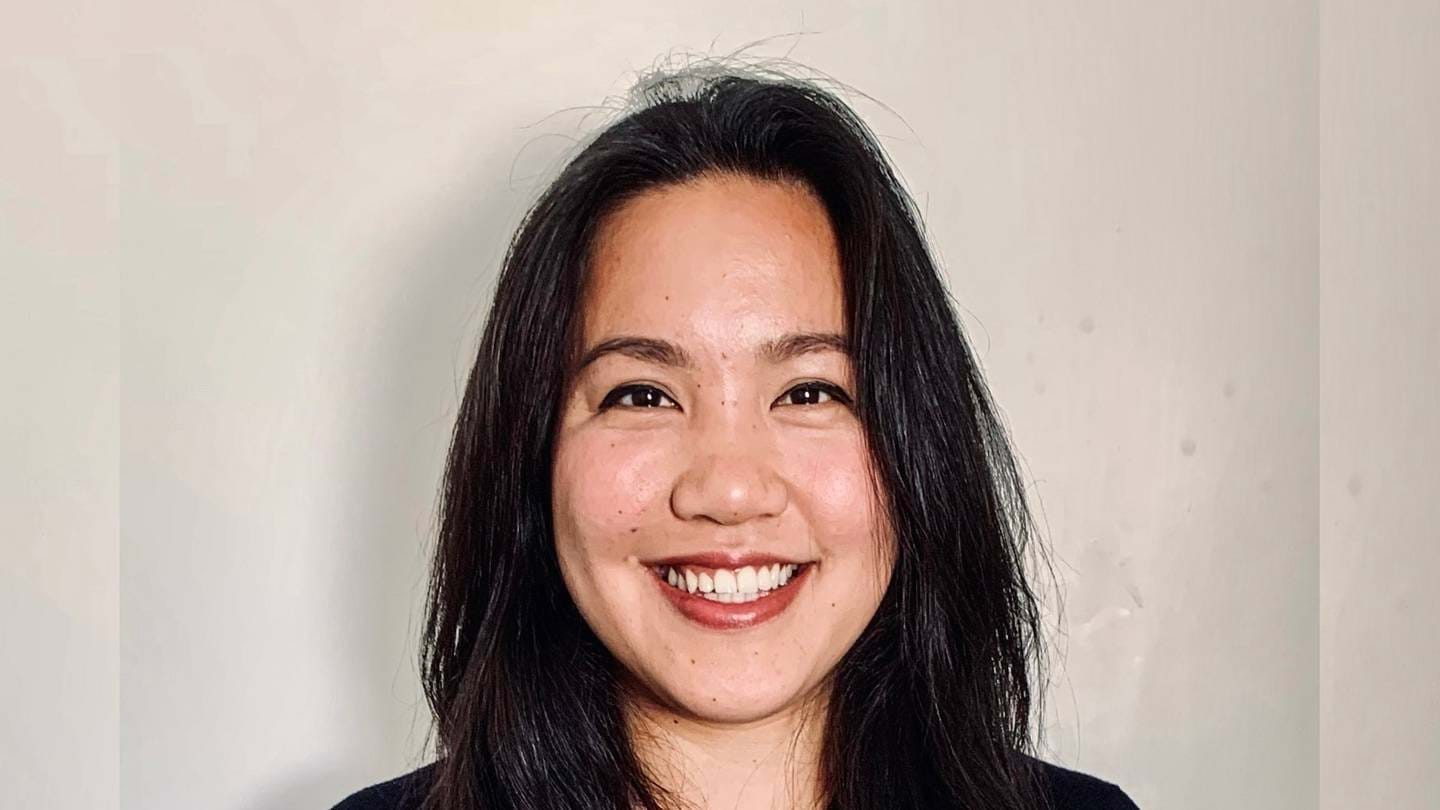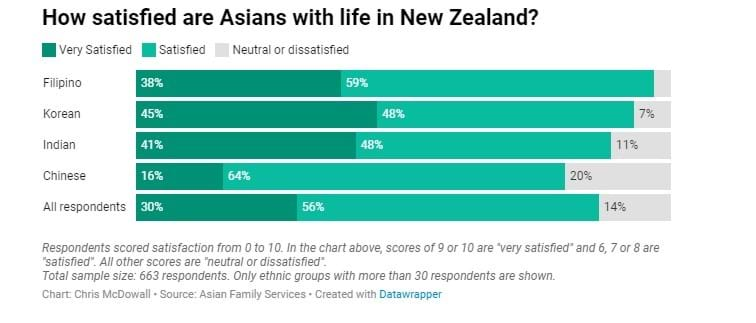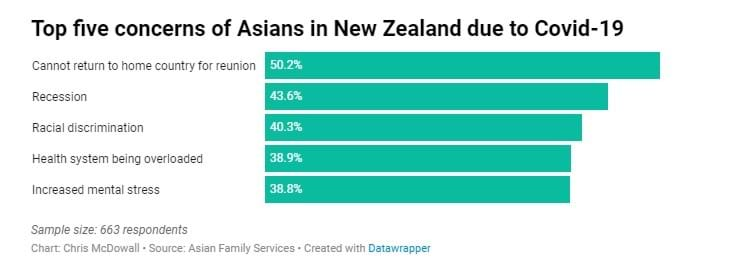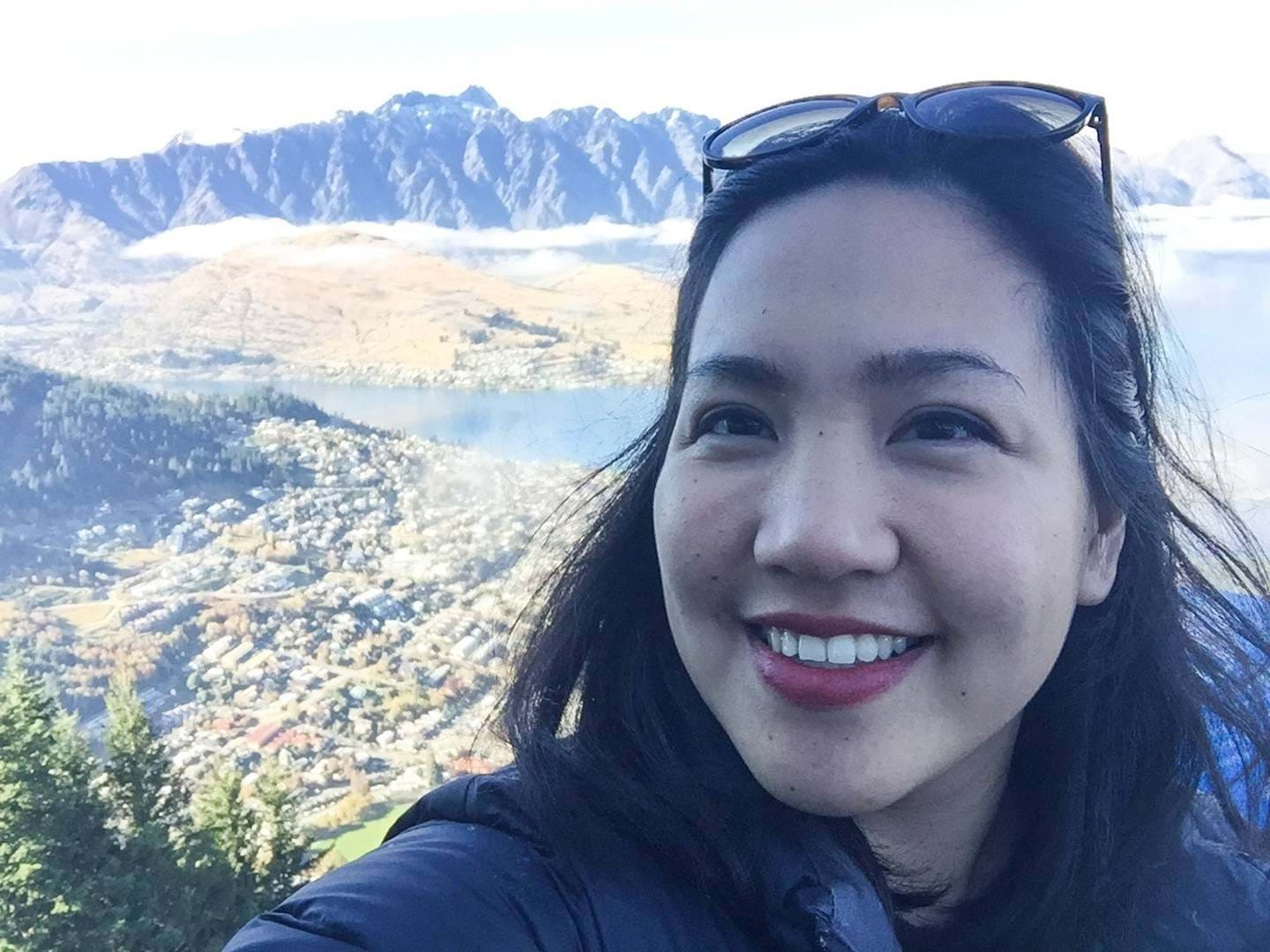
If Kamila Quijano could travel, she'd rate her life in New Zealand 10 out of 10. Photo / Supplied
By: Qiuyi Tan
Diversity reporter, NZ Herald
[email protected]
Most Asians are satisfied with life in New Zealand but nearly half could be at risk of depression, a new survey shows.
Eighty-six and a half per cent of respondents chose six and above when asked to rate their satisfaction with life here on a scale from zero to 10.
Filipinos may be the happiest group, with 97 per cent reporting satisfaction, followed by Koreans (93 per cent), Indians (89 per cent) and Chinese (80 per cent).
"Isn't that delightful?" says Sir Peter Gluckman, Distinguished Professor at the University of Auckland, even as he cautions against over-interpretation of numbers that raise more questions than answers.
There is a darker finding. Forty-four per cent of all respondents showed symptoms of depression, more so for Asians under 30 (61 per cent).
It is possible for migrants to be happy in New Zealand and be at risk of depression, says Kelly Feng, director at Asian Family Services, the counselling agency that commissioned the survey.
Depression risk could stem from one area of life you're struggling with, she says.
"Maybe you have a husband who's suffering from a gambling addiction, or you're stressed and can't sleep at night... We see it all the time in our service."
Most Asians are saying life in New Zealand is not too bad, but the survey is most valuable in pointing out their needs as a distinct population, says Gluckman.
"Let's not get bound up in the numbers as being the most robust estimate of what's going on."

Kelly Feng, director of counselling provider Asian Family Services. Photo / Alex Burton

The study surveyed a nationally representative sample of 663 Asians living in New Zealand between April and May this year, offering a snapshot of the diverse community's mental health and wellbeing.
It follows a similar survey last year that found Asians were much less likely to seek mental health support from the public health system compared to national figures. Just over 40 per cent would go to close friends and family, while 28 per cent would go to their GP. Fourteen per cent would not seek help at all.
The latest survey asked why, and found the top barriers involve a lack of awareness and knowledge about mental health and available services, as well as language and cultural differences.
Forty-eight per cent of respondents said they had difficulty accessing language and or cultural support regularly when using health services in New Zealand. Women experience more difficulty than men; and under-50s find it harder than over-50s.
There are big regional differences in the availability of culturally appropriate services, says Wendy Voon, health promotion specialist at primary healthcare provider WellSouth.
Away from Auckland and Wellington's large Asian populations, services like interpretation are a lot scarcer, she says, speaking from Invercargill.
Case in point, she is one of only two Asians in her organisation. "Not many Asians work in the health sector here in the South Island and more work needs to be done to get Asian representation up."

"We need to empower Asian communities to look after their mental health and more importantly, talk about it," says Feng.
Migrants tend to be resilient people who keep their troubles to themselves, often because of the stigma around mental illness and problems in general, which could be seen as personal failures.
There is a real need for culturally appropriate online resources that people can proactively use so they don't sit on the problem and end up in late-stage depression.
"We should be investing in prevention and early intervention, social media campaigns that talk about what is wellbeing," she says.
"Things like, what can you do when you worry?"
"We prize happiness"
Asked to rate her life in New Zealand, Kamila Quijano gives it a nine out of 10.
The 35-year-old Filipino mother-of-one works part-time at her family's immigration consultancy. If travel were possible, her life here would be a 10 out of 10, she says.
"Filipinos prize happiness a lot... we gravitate towards people who are happier, and the people who exude happiness are highly respected within the community."
Her husband is Chinese and she sees clear differences in the ways they express themselves.
"If I'm happy you'll know that I'm happy. If my husband's happy, you can't be sure," she said with a laugh.
